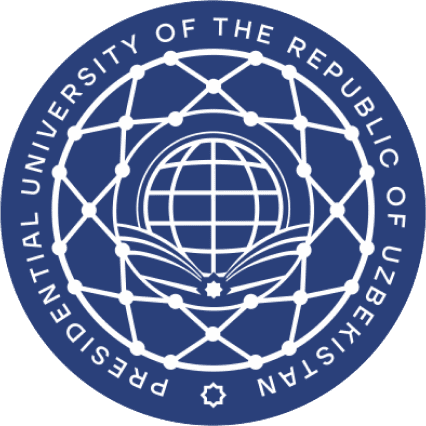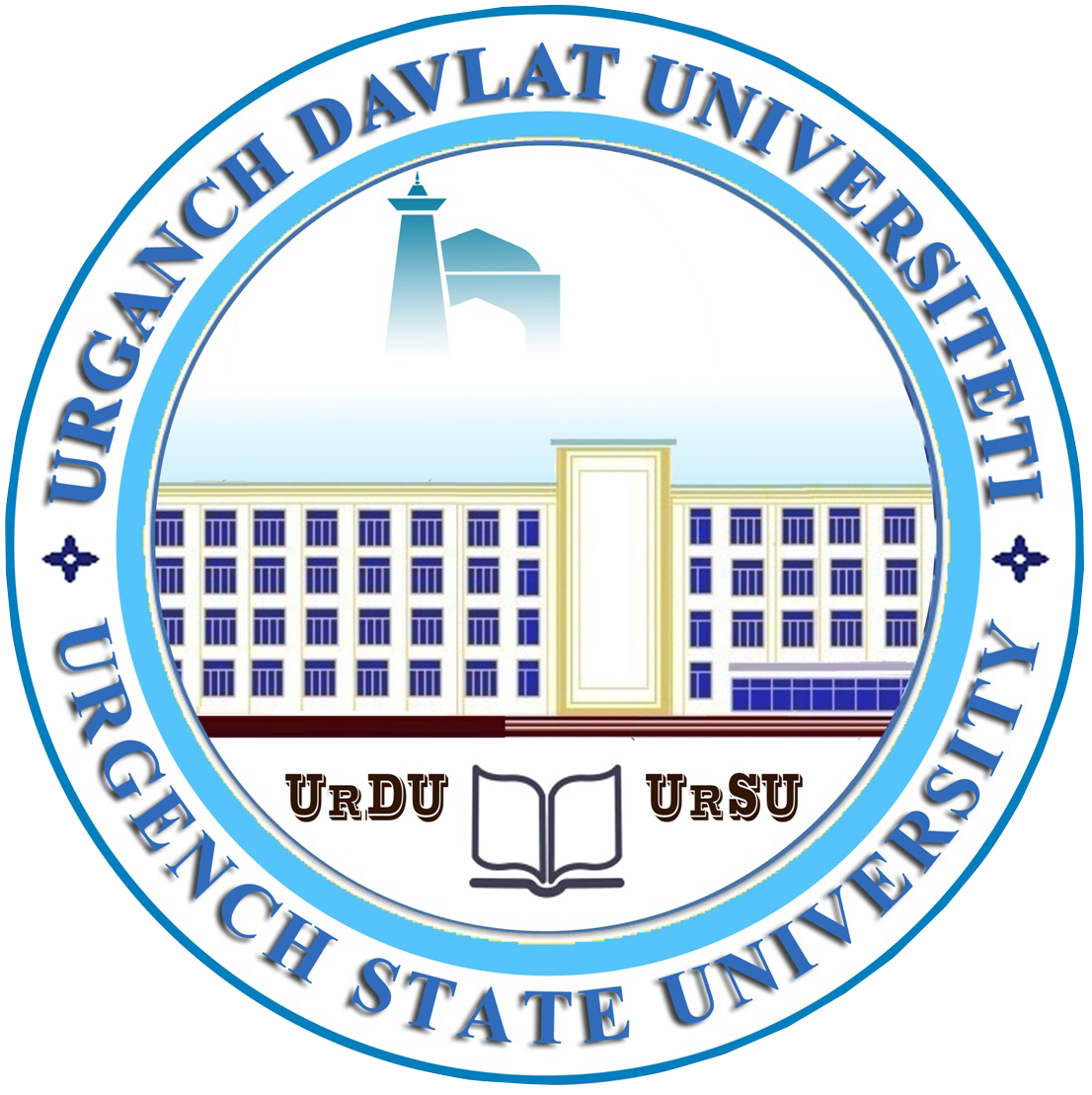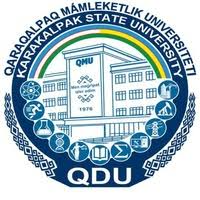First China-Uzbekistan Conference in Representation Theory
August 20 - 30, 2024, New Uzbekistan University
The First China-Uzbekistan Conference in Representation Theory will be held in
New Uzbekistan University from August 20 to 30, 2024. We are excited to host this conference and
provide for scholars from China, Uzbekistan, and beyond to exchange ideas, collaborate on research,
and build lasting connections.
The program of the conference consists of 3 parts in order to visit the
universities in different parts of Uzbekistan to foresee possible cooperation between China and
Uzbekistan:
- August 19-23, International conference in New Uzbekistan University, Tashkent
- August 25-28, International conference in Urgench University, Khiva
- August 28-30, Visit to Nukus University, the most western university of the country.
Organizing Committee
Shavkat Ayupov (Romanovskiy Institute of Mathematics, Uzbekistan Academy of Sciences)
Jiping Zhang (Peking Univerisity)
Vyacheslav Futorny (Southern University of Science and Technology)
Bahodir Ahmedov (New Uzbekistan Univerisity)
Bakhtiyor Yuldashev (New Uzbekistan Univerisity)
Bakhrom Abdullaev (Urgench State Univerisity)
Zafar Ibragimov (Urgench State Univerisity)
Xiaojun Chen (New Uzbekistan Univerisity, Sichuan University)
Farkhod Eshmatov (New Uzbekistan Univerisity)
List of Speakers
Shavkat Ayupov (Romanovskiy Institute of Mathematics, Uzbekistan Academy of Sciences)
Vyacheslav Futorny (Southern University of Science and Technology)
Naoki Genra (Tokyo University)
Iryna Kashuba (Southern University of Science and Technology)
JongHae Keum (Korea Institute for Advanced Study)
YoungRock Kim (Hankuk University of Foreign Studies)
Libor Krizka (Charles University)
Xingpeng Liu (Southern University of Science and Technology)
Bakhrom Omirov (Harbin Institute of Technology)
David Ridout (University of Melbourne)
Alistair Savage (University of Ottawa)
Shaobin Tan (Xiamen University)
Lizhong Wang (Peking University)
Quanshui Wu (Fudan University)
Changchang Xi (Capital Normal University)
Qing Xiang (Southern University of Science and Technology)
Ziqing Xiang (Southern University of Science and Technology)
Nina Yu (Xiamen University)
Jiping Zhang (Peking University)
Schedule
| Time | Speaker | Title |
|---|---|---|
| 9:00-10:00 | Rector of NewUU | Opening ceremony |
| Shavkat Ayupov | ||
| Jiping Zhang | ||
| 10:00-11:00 | Shavkat Ayupov | 2-local derivations and automorphisms on von Neumann algebras and C*-algebras |
| 11:00-11:30 | Coffee break | |
| 11:30-12:30 | Jiping Zhang | Sylow theorem and related problems |
| 12:30-14:00 | Lunch | |
| 14:00-15:00 | YoungRock Kim | Categorification of quantum Bocherds-Bozec algebras |
| 15:00-16:00 | Iryna Kashuba | On one-sided representations of Jordan algebras |
| 18:00 | Conference dinner | |
| Time | Speaker | Title |
|---|---|---|
| 9:00-10:00 | Qing Xiang | Storage codes on triangle-free graphs |
| 10:00-10:30 | Coffee break | |
| 10:30-11:30 | Changchang Xi | Derived equivalences of centralizers and equivalence relations of matrices |
| 11:30-12:30 | JongHae Keum | Rational homology projective planes |
| 12:30-14:00 | Lunch | |
| 14:00-15:00 | Alistair Savage | The spin Brauer category |
| 15:00-16:00 | Ziqing Xiang | Quantum wreath products and their representations |
| Time | Speaker | Title |
|---|---|---|
| 9:00-10:00 | Shaobin Tan | Representations of the elliptic Lie algebras and vertex algebras |
| 10:00-10:30 | Coffee break | |
| 10:30-11:30 | Lizhong Wang | The geometric McKay correspondence |
| 11:30-12:30 | Bakhrom Omirov | On the uniqueness of maximal solvable extensions of nilpotent Lie superalgebras |
| 12:30-14:00 | Lunch | |
| 14:00-18:00 | Free discussion | |
| 18:00 | Conference dinner | |
| Time | Speaker | Title |
|---|---|---|
| 9:00-10:00 | David Ridout | Modularity beyond rationality |
| 10:00-10:30 | Coffee break | |
| 10:30-11:30 | Libor Krizka | Twisted chiral algebras on generalized flag varieties |
| 11:30-12:30 | Nina Yu | Orbifold theory in vertex operator algebras |
| 12:30-14:00 | Lunch | |
| 14:00-15:00 | Naoki Genra | Chiral reduction by stages for affine W-algebras |
| 15:00-16:00 | Xingpeng Liu | On multiplicity-free weight modules over quantized enveloping algebras |
| 16:00-17:00 | Quanshui Wu | CH-Hopf Algebras and their Irreducible Representations |
Titles and Abstracts
Ayupov Shavkat: 2-local derivations and automorphisms
on von Neumann algebras and C*-algebras
Abstract: Given an algebra $A$, a linear mapping $T: A\to A$ is called a homomorphism (respectively, a derivation) if $T(ab)=T(a)T(b)$ (respectively, $T(ab)=T(a)b+aT(b)$) for all $a, b$ in $A$. A one-to-one homomorphism is called an automorphism. A mapping $\Delta: A\to A$ (not linear in general) is called a 2-local automorphism (respectively, a 2-local derivation) on $A$, if for every $x,y$ in $A$ there exists an automorphism $a_{x,y}$ (respectively, a derivation $d_{x,y}$ on $A$ depending on $x$ and $y$, such that $\Delta(x)=a_{x,y}(x)$, $\Delta(y)=a_{x,y}(y)$ (respectively, $\Delta(x)=d_{x,y}(x)$ and $\Delta(y)=d_{x,y}(y)$). The main problem concerning the above notions are to find conditions under which every 2-local automorphism or derivation automatically becomes an automorphism (respectively, a derivation). For general C*-algebras this problem is still open. In the present talk we give a solution of this problem in the framework of von Neumann algebras and their abstract generalization – AW*-algebras (i.e. Kaplansky algebras). Also, we give a survey of corresponding results of other authors for certain classes of C*-algebras.
Genra Naoki: Chiral reduction by stages for affine W-algebras
Abstract: (Affine) W-algebras are vertex algebras defined as quantum Hamiltonian reductions of affine vertex algebras. Madsen and Ragoucy introduced secondary Hamiltonian reductions to show that some W-algebras can be obtained as quantum Hamiltonian reductions of other W-algebras. The finite W-algebra analogs were also conjectured by Morgan and recently proved by Thibault Juillard and the speaker. I'll talk about recent developments in affine W-algebra cases. This is joint work with Thibault Juillard.
Kashuba Iryna: On one-sided representations of Jordan algebras
Abstract: We study the category of one-sided representations of non-simple Jordan algebras. We associate it with certain associative pointed algebra, i.e. describe these representations of Jordan algebra as representations of certain quiver with relations. Our main tool will be the prominent Tits-Kantor-Koecher construction. This is joint with Vera Serganova.
Keum JongHai: Rational homology projective planes
Abstract: A normal projective surface with at worst quotient singularities is called a rational homology projective plane if it has the same Betti numbers as the complex projective plane. If it is smooth (nonsingular), then it is the projective plane of a fake projective plane. In this talk, I will explain examples, both smooth and singular, and discuss the current state of the art on classifying such surfaces. The problem is also related to the Montgomery-Yang problem from differential topology, originated from the study of circle actions on the 5-sphere.
Kim YoungRock: Categorification of quantum Borcherds-Bozec algebras
Abstract: We categorify the quantum Borcherds-Bozec algebras by constructing their associated Khovanov-Lauda-Rouquier algebras.
Krizka Libor: Twisted chiral algebras on generalized flag varieties
Abstract: By a twisted chiral algebra on a generalized flag variety we mean the space of global sections of a sheaf of twisted chiral differential operators on the corresponding generalized flag variety. The simplest example is the sheaf of chiral differential operators introduced by Gorbounov, Malikov, Schechtman and Vaintrob, which exists only on flag varieties. We describe other examples of twisted sheaves of chiral differential operators and determine their associated varieties. We get also new examples of quasi-lisse vertex superalgebras.
Liu Xingpeng: On multiplicity-free weight modules over
quantized enveloping algebras
Abstract: Multiplicity-free weight modules are a special class of infinite-dimensional weight modules characterized by weight multiplicities uniformly bounded by 1. These modules not only play a crucial role in the classification of simple weight modules but also serve as key examples in understanding the existence and construction of bounded weight modules. In this talk, I will discuss an effective method for constructing multiplicity-free weight modules for quantized enveloping algebras of both finite and affine types, which provide deeper insights into the underlying algebraic structures. This work is joint with V. Futorny.
Omirov Bakhrom: On the uniqueness of maximal solvable extensions
of nilpotent Lie superalgebras
Abstract: In the present talk we discuss on the description of maximal solvable extension of nilpotent Lie superalgebras. Namely, we establish that under the condition which ensures the fulfillment of an analogue of Lie's theorem, a maximal solvable extension of a d-locally diagonalizable nilpotent Lie (super)algebra is decomposed into a semidirect sum of its nilradical and a maximal torus of the nilradical. In the case of Lie algebras this result gives an answer to Šnobl's conjecture. We present an alternative method of describing of the aforementioned solvable Lie (super)algebras. In addition, a criterion of the completeness of solvable Lie algebras is established and it is proved that the first group of cohomologies with coefficient itself for a solvable Lie algebra, vanishes if and only if it is a maximal solvable extension of a d-locally diagonalizable nilpotent Lie algebra. Finally, we present an example to illustrate that the result obtained for the descriptions of maximal solvable extensions of nilpotent Lie (super)algebras does not hold true for Leibniz algebras.
Ridout David: Modularity beyond rationality
Abstract: It is well known that rational conformal field theories are excellent sources of modular tensor categories. However, rationality is extremely special and many physical applications require greater generality. It is natural then to ask how modularity generalises beyond rationality. I shall review some of what is known in this direction and why people only interested in vanilla modular tensor categories should care.
Savage Alistair: The spin Brauer category
Abstract: The Brauer category is a diagrammatic monoidal category describing the representation theory of the orthogonal and symplectic groups. Its endomorphism algebras are Brauer algebras, which replace the group algebra of the symmetric group in the orthogonal and symplectic analogues of Schur-Weyl duality. However, the Brauer category is missing one important piece of the picture: the spin representation. We will introduce a larger category, the spin Brauer category, that remedies this deficiency. This is joint work with Peter McNamara.
Tan Shaobin: Representations of the elliptic Lie algebras and vertex algebras
Abstract: The extended affine Lie algebras (EALAs) are generalization of the finite dimensional simple Lie algebras and affine Kac-Moody algebras over the field of complex numbers. The elliptic Lie algebras (i.e. the toroidal EALAs of nullity two) are a class of the most important EALAs related to the deformation theory of elliptic singularities. In this talk, we deal with the classification of irreducible integrable representations for the elliptic Lie algebras, and the module categories correspondence between the elliptic Lie algebras and the associated vertex algebras.
Wang Lizhong: The geometric McKay correpondence
Abstract: In 1980, McKay constructed ADE type Dynkin diagrams by the tensor products of irreducible representations of finite subgroup of $SL(2,\mathbb{C})$. Let $G$ be a finite group of $SL(2,\mathbb{C})$. Then $\mathbb{A}^2_\mathbb{C}/G$ is an affine variety. By the minimal resolution of singularity of $\mathbb{A}^2_\mathbb{C}/G$, Gonzalez-Sprinberg and Verdier also constructed Dynkin diagrams of ADE type. Recently,Jing-Wang-Zhang have constructed the Dynkin diagrams of BCFG type by the induced and restricted representations of finite subgroups of $SL(2,\mathbb{C})$. In this talk, we will give a geometric construction of Dynkin diagrams of BCFG type.
Wu Quanshui: CH-Hopf Algebras and their Irreducible Representations
Abstract: As it is well known that the irreducible representations of module-finite algebras is a disjoint union of the irreducible representations over some finite-dimensional fibre algebras. In the talk, I will start from the definition of Cayley-Hamilton (Hopf) algebras defined by Conncini-Procesi using trace function, and show that affine Cayley-Hamilton Hopf algebras are Noetherian Artin-Schelter Gorenstein. Then I will survey some recent results related to the irreducible representations and discriminant ideals of Cayley-Hamilton (Hopf) algebras by Brown-Yakimov and Mi-Wu-Yakimov.
Xi Changchang: Derived equivalences of centralizers and equivalence relations of
matrices
Abstract: Derived and Morita equivalences are of great interest in representation theory. For instance, one of the central conjectures in modular rep- resentations of groups is Broue’s abelian defect group conjecture which predicts a derived equivalence of two block algebras. In this talk, we investigate the centralizers of matrices and characterize their derived equivalences. The study of centralizers of matrices has a long history and can trace back to F. G. Frobenius in 1880’s. We introduce new equivalence relations on all square matrices and give necessary and sufficient conditions of Morita and derived equivalences for centralizers of matrices in terms of these relations. Thus homological equivalences of categories are described by methods in linear algebas. The talk reports parts of a joint work with X.G. Li, see arXiv:2312.08794.
Xiang Qing: Storage Codes on Triangle-Free Graphs
Abstract: Consider a simple, connected graph $\Gamma$ with $n$ vertices. Let $C$ be a code of length $n$ with its coordinates corresponding to the vertices of $\Gamma$. We define $C$ as a storage code on $\Gamma$ if, for any codeword $c\in C$, the information at each coordinate of $c$ can be recovered by accessing its neighboring coordinates. The main problem here is to construct high-rate storage codes on triangle-free graphs. In this paper, we employ the polynomial method to address a question asked by Barg and Zemor in 2022, demonstrating that the BCH family of storage codes on triangle-free Cayley graphs achieves a unit rate. Furthermore, we generalize the construction of the BCH family and obtain more storage codes of unit rate on triangle-free graphs. We also compare the BCH family with the other known constructions by examining the rate of convergence of $1/(1-R(C_n))$ with respect to the length $n$, where $R(C_n)$ is the rate of code $C_n$. At last, we reveal a connection between the storage codes on triangle-free graphs and the Ramsey number $R(3,t)$, which leads to an upper bound for the rate of convergence of $1/(1-R(C_n))$. This is joint work with Haihua Deng, Hexiang Huang, Guobiao Weng.
Xiang Ziqing: Quantum wreath products and their representations
Abstract: We introduce a new notion called the quantum wreath product, which produces an algebra $B \wr_Q H(d)$ from a given associative algebra $B$, a positive integer $d$, and a choice $Q = (R, S, \rho, \sigma)$ of parameters. Important examples include many variants of the Hecke algebras. We will discuss the bases of quantum wreath products and their representations. We will focus particularly on Hu algebra, which quantizes the wreath product of symmetric groups. This is joint work with Daniel Nakano and Chun-Ju Lai.
Yu Nina: Orbifold Theory in Vertex Operator Algebras
Abstract: Orbifold theory explores the structure of vertex operator algebras (VOAs) when finite groups act on them, with a particular focus on understanding the representation theory of the fixed point subalgebra. A key aspect of this field is permutation orbifolds, which study how the symmetric group acts on the n-fold tensor product of a VOA. In this talk, I will present our recent findings on the fusion product of twisted modules in permutation orbifolds. This work is a collaboration with C. Dong and F. Xu.
Zhang Jiping: Sylow theorem and related problems
Abstract: Sylow theorem is considered the fundamental theorem of finite group theory. It is easy to see by the theorem that a finite group $G$ has a subgroup of order $n$ if $n$ is a prime power and divides the order of $G$. It is asked by Isaacs whether or not a positive integer $n$ is necessarily a prime power if any finite group $G$ of order divisible by $n$ has a subgroup of order $n$. We solve the problem. A positive integer $n$ is called a Hall number if any finite group of order $nm$ has a subgroup of order $n$ where $m$ is any positive integer coprime to $n$. Hall numbers are recently determined by C. Li, etc.
Sponsors




About Uzbekistan
Tashkent, the vibrant capital city of Uzbekistan, offers a rich tapestry of cultural experiences and historical wonders for conference attendees to explore. Known for its captivating blend of modernity and tradition, Tashkent boasts iconic landmarks like the historic Chorsu Bazaar, where visitors can immerse themselves in the colors and aromas of Central Asian spices and crafts. The city is adorned with stunning Islamic architecture, exemplified by the grand Hast Imam Square and its collection of ancient manuscripts. As conference participants engage in intellectual discourse, they can also savor the local cuisine, characterized by its diverse flavors and influences.
Beyond Tashkent, Uzbekistan unfolds as a treasure trove of Silk Road heritage, with cities like Samarkand and Bukhara offering a glimpse into the country's illustrious past. From the warmth of its people to the enchanting landscapes, Tashkent and Uzbekistan promise conference attendees an unforgettable blend of academic pursuits and cultural exploration. For more information visit Uzbekistan travel.